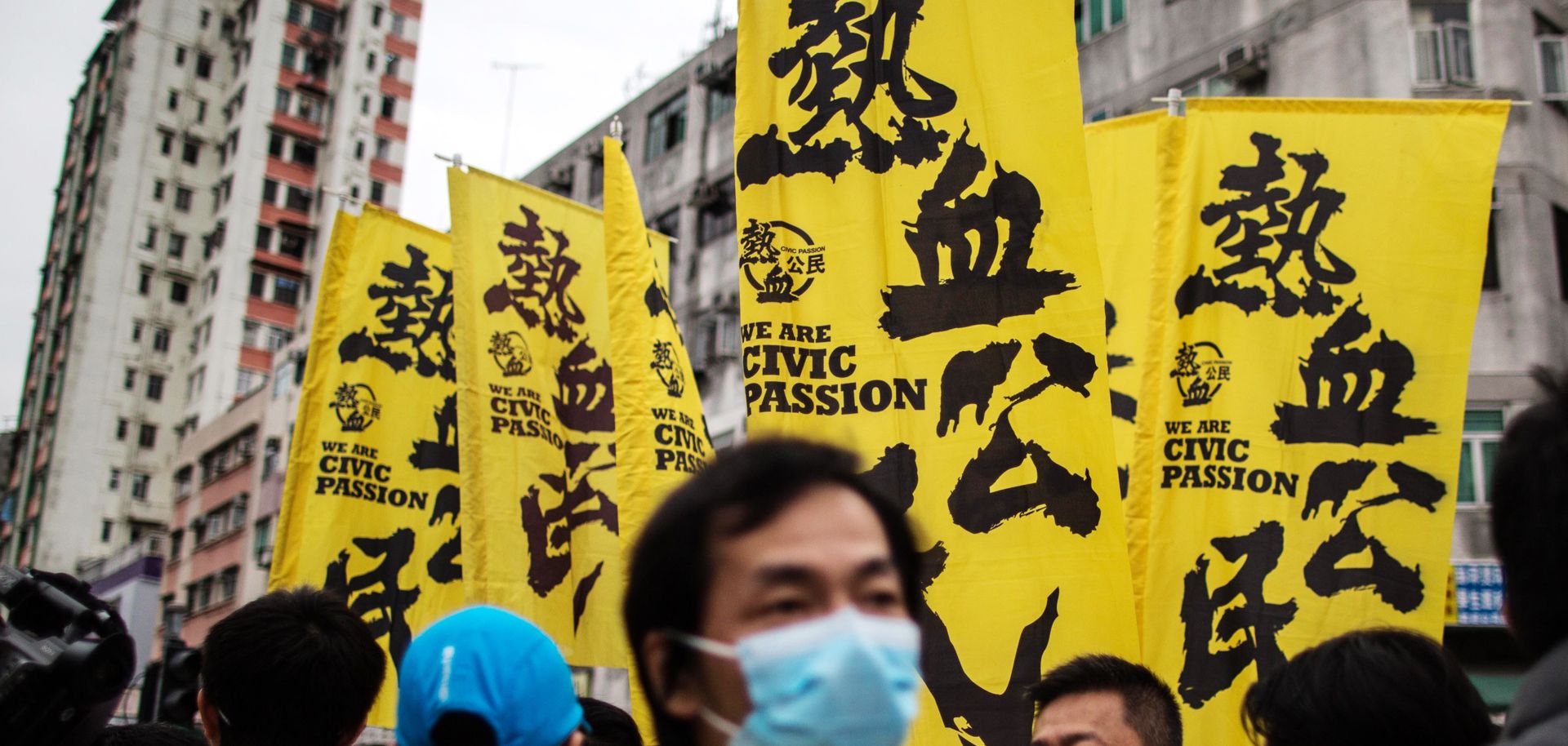ASSESSMENTS
Analytic Guidance: Monitoring Hong Kong's Anti-Mainland Sentiments
Mar 13, 2015 | 08:49 GMT

(ANTHONY WALLACE/AFP/Getty Images)
Summary
Beijing is in the midst of the annual sessions of the National People's Congress and the Chinese People's Political Consultative Conference. These are gatherings of China's top representative bodies, during which they debate the implementation of reforms and other policy measures. This year, delegates from Hong Kong have proposed measures that would impose limits on the number of visitors from mainland China. The measures would set quotas on mainland travelers entering individually and would cap multiple-entry permits. The number of mainland visitors to Hong Kong reached 47 million in 2014, up 16 percent from a year before. These proposals came as Leung Chun-ying, Hong Kong's pro-Beijing chief executive, announced that he was negotiating with Beijing to keep the scheme from expanding to more cities. Leung was the leader who conceived the Individual Visit Scheme that brought in more mainland visitors to boost Hong Kong’s economy after the 2003 Severe Acute Respiratory Syndrome outbreak.
Notably, the delegates behind the proposition come from Hong Kong's pro-business parties, whose constituents benefit from mainland tourism. That they would even propose such measures suggests they are responding to significant anti-mainland pressures in Hong Kong. Beijing appears to recognize the pressure that Hong Kong’s politicians are under. To this end, the deputy director of the Hong Kong and Macau Affairs Office, Zhou Bo, acknowledged this and said that negotiations were under way to "refresh" the Hong Kong tourism policy. However, the measures are likely to find a reluctant audience in Beijing. While in the short run Beijing appears to be willing to make limited concessions on tourism, the central government would prefer that Hong Kong use alternative methods to assuage anti-mainland sentiment in the long run.
Proceed to sign up
Register NowAlready have an account?
Sign In